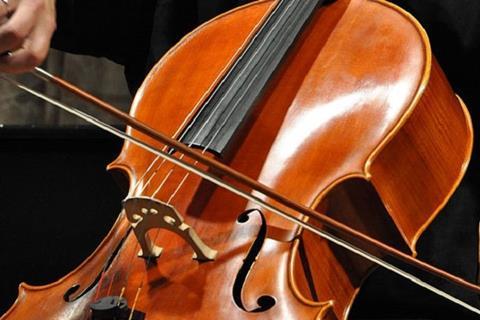Performance coach Travis Baird recommends three key strategies for effective practice when everyday commitments seem to leave little time

As music teachers, we’ve all been there. Between lessons, gigs, and endless administrative tasks, it can feel overwhelmingly difficult to find enough practice time each day to meet the high expectations we hold for ourselves.
Often, when we do find time to practise, it’s nearly impossible to decide what to work on. There is just so much music to work on and so little time to practise.
Next time you find yourself struggling to prioritise your practice time, use these three overwhelm-free techniques for calm, focused and efficient practice.
1. Ask yourself: ‘What is the one thing I could practise today that would make everything else easier?’
If you could only practise one thing today, what would you choose?
In their book The One Thing, entrepreneurs Gary Keller and Jay Papasan propose that the practice of prioritising a single task is the key to focus and productivity. They suggest asking yourself the following focusing question each day: ‘What’s the one thing I can do such that by doing it everything else will be easier or unnecessary?’
For musicians, a similar focusing question would be: ‘What is the one thing I could practise today such that by doing it everything else would be easier or unnecessary?’
If you have a ton of music to work on, this question is essential. Often, we simply don’t have time to practise every single thing that we’d like to practise.
Instead of getting overwhelmed and feeling upset that you don’t have enough time, the best thing you can do is focus on one thing at a time. If you finish your ‘one thing’ and you still have some time to practise, pick your next ‘one thing’ and get to work.
2. Embrace small, clearly directed practice goals
When I was in school, I often had the luxury of scheduling multiple two/three-hour practice sessions each day. That freedom allowed me to take a very relaxed approach when it came to organising my practice sessions. I always had as much time as I needed.
But after graduating and transitioning into professional life, I have only rarely had that kind of flexibility in my schedule. Now, in order to accomplish anything in my relatively limited practice time, I have to be stay organised and set clear goals.
If you find yourself short on practice time, the best thing you can do for your productivity is to set small, attainable goals for each practice session.
For example, instead of setting a goal that will take over an hour (like getting comfortable with a whole movement of a string quartet), set a goal that takes ten minutes (like writing in fingerings for all of the challenging sections).
Before you pick up your instrument in each practice session, decide what your first goal will be and how long you will give yourself to accomplish it. Once you accomplish that goal, set a new one. When the practice session is over, take joy in the fact that even in a little bit of time, you did excellent work.
3. Let go of perfectionism
As musicians, most of us are really good at holding ourselves to high standards. And those high standards empower us to perform extraordinarily challenging pieces with ease. But if you find yourself struggling with the feeling that nothing you perform is ever good enough, those high standards might be causing an unhelpful level of perfectionism.
When practice time is short, you may not be able to polish everything to perfection. But that does not mean that you can’t give a convincing and enjoyable performance. Next time you find yourself thinking that you’re not good enough, pause for a moment. Notice the negative self-talk. Take a deep breath in, then let it out slowly.
Finally, redirect your attention to the purpose of your performance. Is your goal to be perfect? Or is your goal to communicate with the audience and connect in some way?
Finally… embrace change
Throughout our professional lives, circumstances change. Sometimes it will be easy to find time to practise and sometimes it will be exceedingly difficult. That is part of life as a professional musician.
Rather than fighting against the change, embrace it. Keep finding creative new ways to practise efficiently and you will thrive throughout your career.

Dr. Travis Baird is a mindfulness teacher and performance coach for musicians, helping educators and performers prioritise their goals, manage performance anxiety, and teach with joy.
He is the founder of Dynamic Music Teacher, offering courses and workshops on performance preparation, productivity, and musician wellness.























































No comments yet